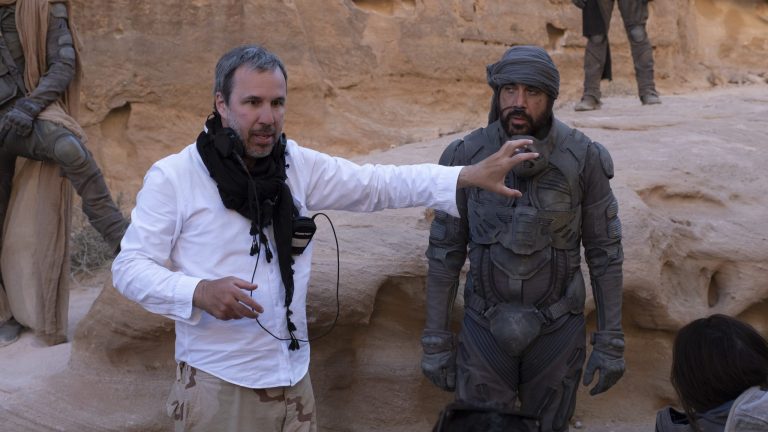Why Dune is Still Timely in 2020
Director Denis Villeneuve says that Dune is just as relevant today as it was 55 years ago.

When Frank Herbert’s novel Dune was published in 1965, it was heralded for its deft blend of science fiction and non-scientific elements to tell a story that reflected on humanity’s ability (or lack thereof) to evolve, its relationship with its environment and the politics of how empires rise and fall.
Some 55 years later, the themes of the book are even more relevant to the world today. We face shortages of water and literally exploding climate change. More and more power is steadily concentrated in the hands of the few, authoritarian governments and partisan hatred seem to be rising everywhere (even, unthinkably, in the United States) and technology continues to advance into unforeseen new realms even as it creates major fractures in our society.
With the world seemingly on fire in many ways both literal and metaphorical, director Denis Villeneuve agreed in an online discussion with Stephen Colbert that adapting Dune into a movie now is almost eerily appropriate.
“It’s a call for change,” said Villeneuve about the story. “It’s also a movie, as I said earlier, about the capacity of that vision. The ones who will survive are the people who are able to adapt and change, because there’s a lot of changes that are coming in the world through the next decades with climate change and all this.”
To drive home the movie’s themes of ecological change and adaptation, Villeneuve insisted on filming in real places, like the nation of Jordan, and using genuine locations and physical sets as much as possible.
“I think that Dune is about the ecosystem,” he explained. “I think that in order to bring Dune to the screen, I needed to be as close to nature as possible, to make Dune as close to us possible. So when people will see the movie, they will be as amazed by the power of the landscape. They will be amazed by the beauty of the creatures that we brought or things like that… I think it’s important that in a subconscious way they feel that this world is real. Because the movie’s about us. And at the end of the day, I want the audience to feel that deep inside their soul.”
Calling this epic tale of two powerful families battling over control of a planet, its people, and its one universe-altering resource a “great human story,” Villeneuve also acknowledged that Dune has many undercurrents below its surface. The saga touches on elements of science, politics, religion, prophecy, spirituality and human rights, only set in a far future that is both advanced and feudal.
“You can see it as a powerful, but simple adventure story,” said the director. “But it has so many rules and so many themes. That’s what makes the book so rich, and we tried to keep that richness in the movies. It’s always tricky to choose one word or one specific meaning, because it touches on so many elements. But I would say that it’s about how humans need to earn our destiny in order to change the world, and it’s kind of a call for action for us to change things, specifically for the youth.”
That youth is represented in the movie by Paul Atreides (Timothée Chalamet), the heir of the ruling Atreides family who is thrust into becoming not just a leader for the Fremen — the native people of the desert planet Arrakis — but possibly the embodiment of an ancient prophecy that foretells the arrival of a superbeing who can change the course of history. But becoming a leader is not without its pitfalls, as Paul will eventually find out.
“We will need to change our ways of living,” concludes Villeneuve. “We will need to change our way of dealing with nature and the world, and that takes a lot of courage and ethics. And I think that Dune is a call for that. It has its roots in all these topics, so that’s why I think Dune is more relevant than ever.”
Dune is scheduled to open in theaters on December 18.
